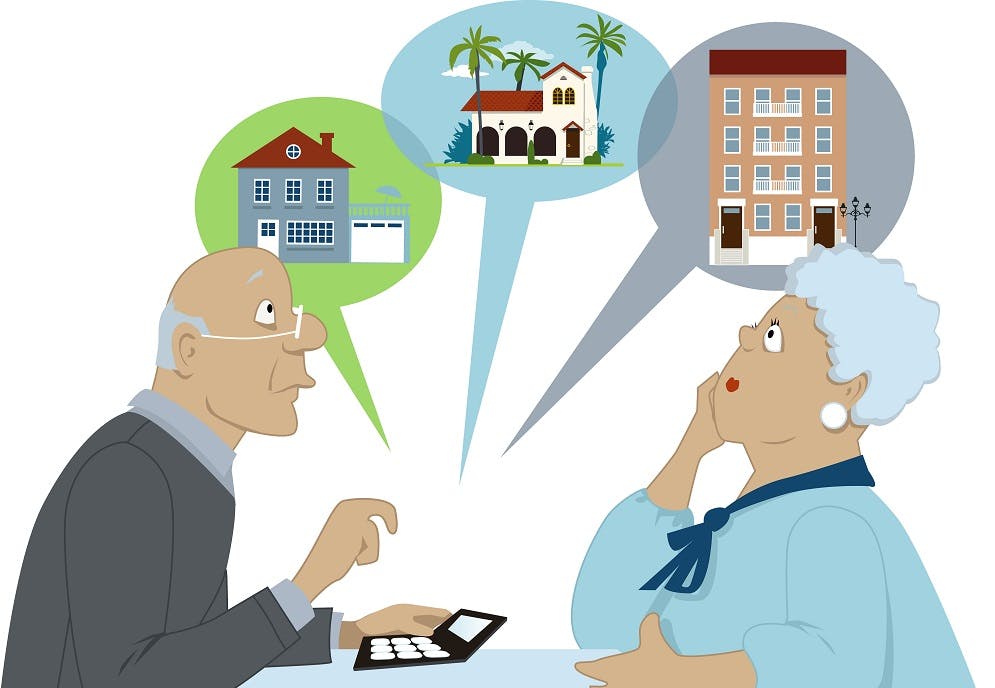By Mike Longsdon
Seattle/King County may be one of the fastest-growing cities in the nation, with a wave of Millennials hitting our shores every day, but it’s also home to another expanding segment – seniors.
The county has approximately 421,000 residents aged 60 and above, according to U.S. Census data released in June. Many baby boomers (born 1946-1964) are entering their swinging sixties, with the Census reporting a 40.6% gain in the 60-79 age group in our county since 2010. That’s a population spurt more than twice the national average.
Many of this group are still young at heart and happy to live right where they are. Many others, however, see a need to downsize from large, single-family houses. And why not? Living in a hard-to-manage home can be one of life’s great challenges. There is the seemingly endless upkeep to the home as well as potential mobility issues as one ages.
That is why downsizing to a smaller home is potentially a vital move for many seniors. However, downsizing does not only apply to a house — it covers many aspects of life. Only the individual really knows when the moment is right to move, and when the time comes there are a few items to avoid:
Buying more house than you can manage (physically and financially)
The perfect house for you to age in place – in which aging owners retrofit their homes to accommodate growing older – is one that doesn’t require so much upkeep that you either overwork yourself trying to manage it, let it fall into disrepair or have to spend a lot of money hiring people to maintain it for you. (Here are tips for financing renovations when of aging in place.) If you have to hire a weekly housekeeper or someone to take care of the yard because you cannot, that’s an obvious drain on your budget.
You should also be cautious of the amount of your monthly mortgage payment. Seniors’ financial situations can change rapidly and you need to look pretty far into the future to determine what you can afford. (The median sales price for a typical home in Seattle was $700,500 as of July 2019.) Not only that, but you need to factor in the often-forgotten costs of home buying and homeownership — things like repair and modification costs, taxes and insurance. For example, if you need to remodel your bathroom, the average cost is $10,775 in Seattle.
Letting the clutter take over
If downsizing your home isn’t in the cards, you can at least downsize the clutter. Over the years you’ve likely collected a lot of things. While some are sentimental and most certainly worth keeping, there are some items you can stand to donate, give to a friend/family member or toss out. It will not only leave you feeling less stressed, but it can free up space to improve your mobility or make room for future renovations that will enable you to age in place. While you are sorting through items, you can add a little bit of organization to the mix so that you don’t find yourself searching for that medicine bottle to call in a prescription or frantically trying to locate the bill you know is coming due. Perhaps you could turn your designated junk room into a space you can get plenty of use and enjoyment from – a reading room, hobby room or a playroom for the grandkids.
Not taking advantage of senior discounts
Downsizing your finances doesn’t mean you have to forgo having fun and enjoying life. This is where senior discounts come in.
Rather than obsess over the fact that you now meet the age requirement, focus on all the savings waiting to be had. You can find discounts on anything from groceries and medication to leisure, travel, and transportation. (Many such benefits come with an AARP membership.)
The savings might not be readily advertised, but it never hurts to ask. If you aren’t sure where to start, browse this robust list and see if you could be racking up the savings at some of your favorite places.
Discounts aren’t the only way you can cut costs. Perhaps it would be worthwhile to create a weekly budget or at least track your spending habits for a week or two to see where your money is going.
If you take care in choosing the right downsized home for your particular needs (both physically and financially), reduce the clutter (and the stress), and take advantage of savings opportunities, you will be on your way to a new chapter in life where you can live happily, comfortably and independently well into old age.
Mike Longsdon provides advice to seniors on downsizing and aging in place and can discuss concerns like tackling home accessibility modifications, how to find a great contractor, the benefits of aging in place and more.




